If you take a quick glance at your Facebook feed, you’ll probably see a few posts from friends, family, or acquaintances liking, tagging, and commenting on posts promising to pick out a winner. You may have even tried your own luck as well. But what happens when the Facebook contest turns out to be fake?
One netizen shared a story from their high school days when they did their utmost to win a Facebook contest. But when the winner was announced, they grew suspicious and decided to investigate, culminating in some unhappy revelations and petty revenge. Readers shared their own tales of contest drama.
Interacting with a Facebook post seems like a harmless way to maybe win a small prize
Image credits: A.Savin (not the actual photo)
But one person decided to dig a little deeper after losing a contest they should have won
Image credits: Pixabay (not the actual photo)
Image credits: Karolina Grabowska (not the actual photo)
Image credits: yamanshan
Cybercriminals have a lot of tools they use to scam people
While OP came across a relatively, harmless, if annoying fake contest, there is always a bigger fish out there. Cybersecurity experts recommend a few live-by rules that people always keep, as scammers, hackers, and other nefarious agents exist and want more than some interactions on a post. For example, regardless of the source, think twice before clicking on a link. Cybercriminals use a method called “phishing” to trick people into clicking on a fraudulent link where they are prompted to enter personal details, banking information, and anything else the fraudster might be interested in.
While this practice is more commonly found in emails, some take a more creative approach. Hacked social media accounts are used to send out links to friends, followers, and others who might trust the source. They are perhaps asking you to like a post or help them participate in a giveaway. Once you click on the link, you’ll be taken to a page that most likely looks legitimate until you poke around or inspect the URL. The most sophisticated examples can already cause harm just from you clicking on the link, fortunately, most phishing attempts still need to trick you into giving away personal details.
Image credits: Mikhail Nilov (not the actual photo)
Contests are a popular way to get people’s attention online
OP made another smart move by investigating if the page had other “branches” on different social media sites. While they used it to boost their chances, sometimes major brands don’t secure the pages with their names, creating fertile ground for imposters. For example, one enterprising scammer made a page for Drew Scott, from the reality TV show Property Brothers. They used this page to try and scam fans with fake giveaways and other interactions. For example, Bored Panda has already covered one woman who was conned by a fraudster posing as Stranger Things star Dacre Montgomery.
While this page was most likely trying to grow some clout by using interactions to get promoted by the Facebook algorithm, there exist variants where both the “audience” and the store ends up being scammed. For example, this drone store was not at all involved, but more greedy fraudsters might try and make a deal with a vendor. Ostensibly, they will use the contest to “promote” a product, store, or service, then rig it so a friend or acquaintance wins a free drone, phone, movie ticket, or really anything else. It’s only particularly aggressive netizens like OP that keep these pages in check.
Image credits: Yan Krukau (not the actual photo)
Readers congratulated OP on their tenacity
Others also shared their experiences with Facebook contests
I just automatically assume everything on social media is a scam.
Since social media itself is a scam, your assumption is a good one.
Load More Replies...This scam is more insidious than you realize. First, they get as many people to register with them as possible with a fake prize that involves giving likes, comments and recruiting others to join. They get you and everyone else with like farming, this allows them to sell the likes to other dodgy businesses to spam you and anyone on your friends list with ads and sell the likes to add to other sites to boost their likes. They then sell the page to another business using its popularity, where it gets renamed and keeps its followers and the people you convinced to join are hit with the same problems you have
Also, this entire story is giving those who don't understand social media scams "feel good vibes" when in fact this teenager actually accomplished nothing. The page was sold, rebranded, and there was no need for an IG account under that fake drone store name any longer so they simply shut it down. Rest assured, those behind the original scam page have created and ran multiple new fake FB pages to farm likes since. There was truly no lesson learned here all the way around except for people to not trust that drone page, which no longer exists. LOL
Load More Replies...I just automatically assume everything on social media is a scam.
Since social media itself is a scam, your assumption is a good one.
Load More Replies...This scam is more insidious than you realize. First, they get as many people to register with them as possible with a fake prize that involves giving likes, comments and recruiting others to join. They get you and everyone else with like farming, this allows them to sell the likes to other dodgy businesses to spam you and anyone on your friends list with ads and sell the likes to add to other sites to boost their likes. They then sell the page to another business using its popularity, where it gets renamed and keeps its followers and the people you convinced to join are hit with the same problems you have
Also, this entire story is giving those who don't understand social media scams "feel good vibes" when in fact this teenager actually accomplished nothing. The page was sold, rebranded, and there was no need for an IG account under that fake drone store name any longer so they simply shut it down. Rest assured, those behind the original scam page have created and ran multiple new fake FB pages to farm likes since. There was truly no lesson learned here all the way around except for people to not trust that drone page, which no longer exists. LOL
Load More Replies...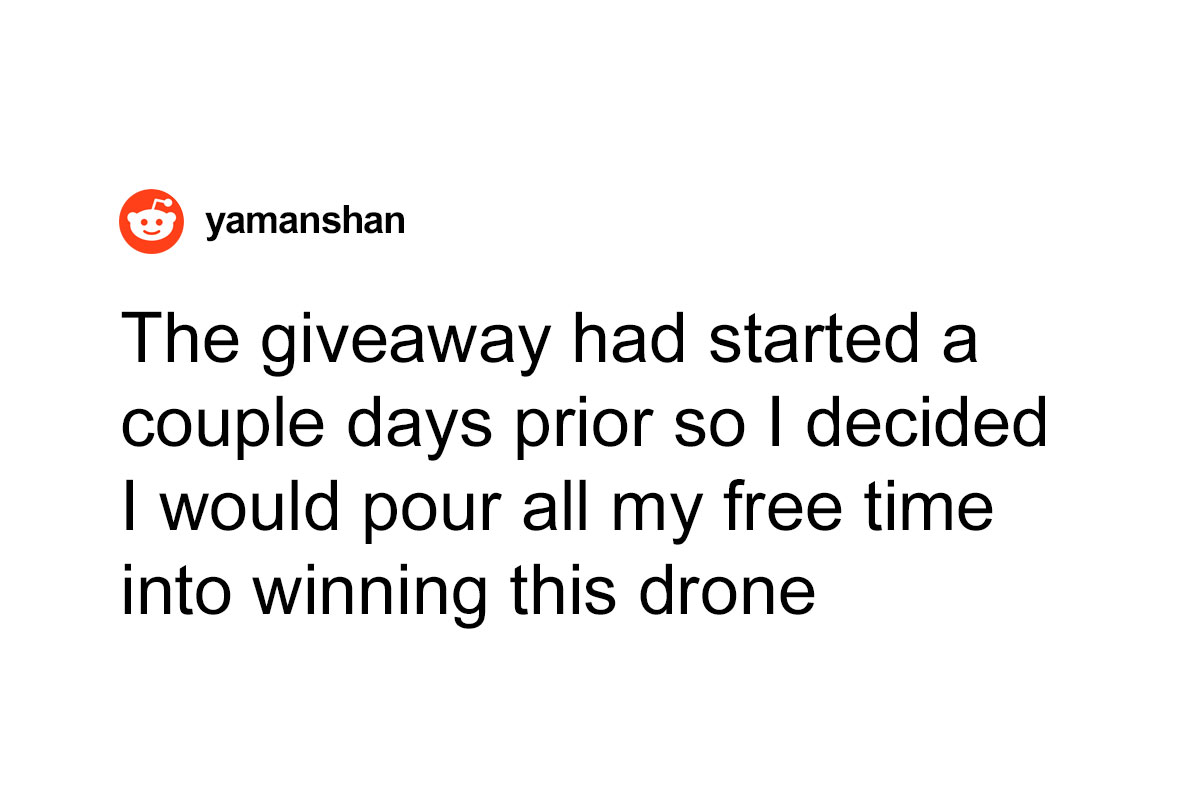

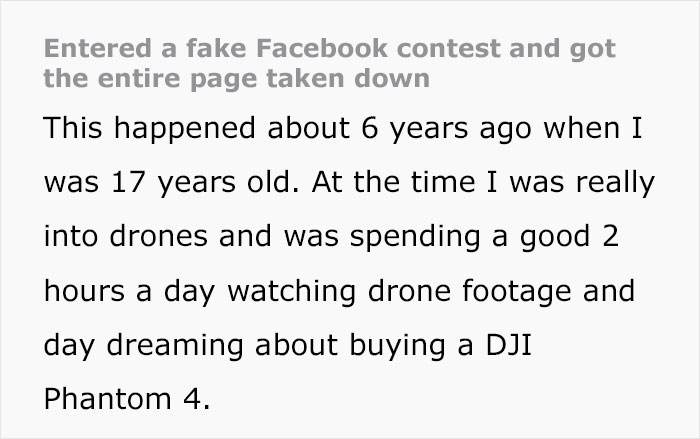
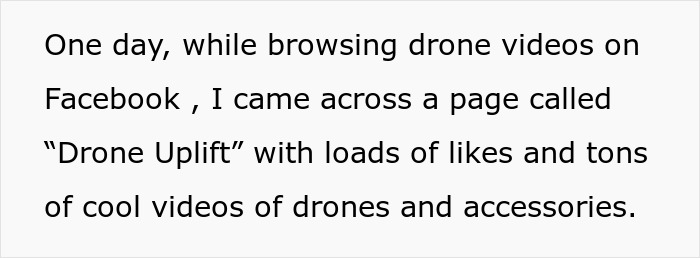
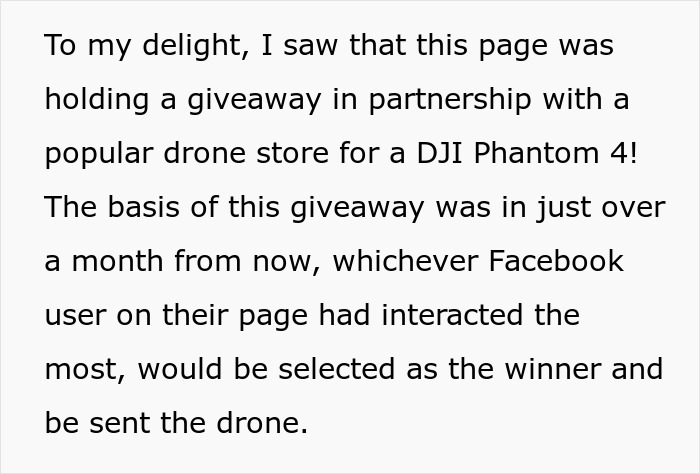

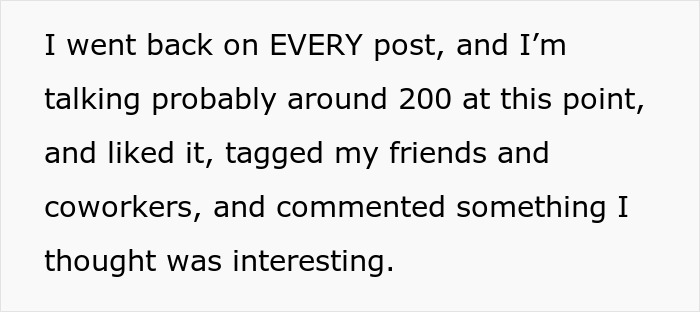
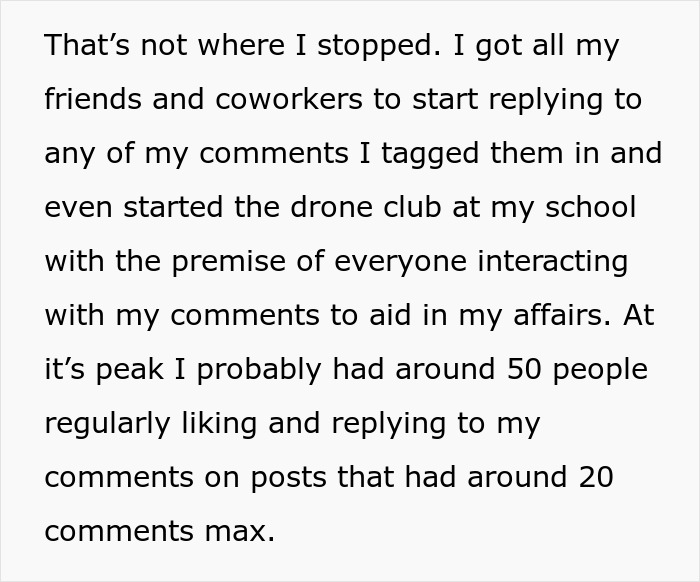


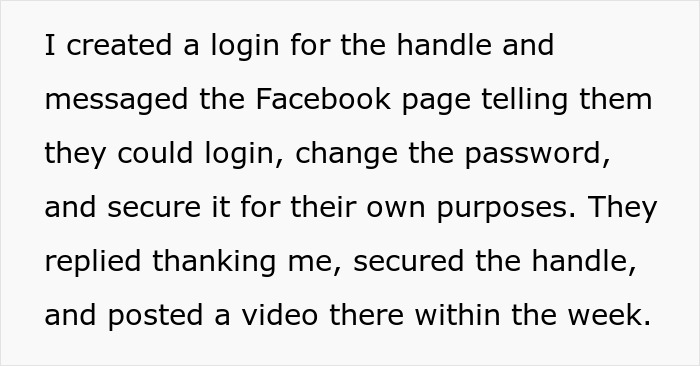
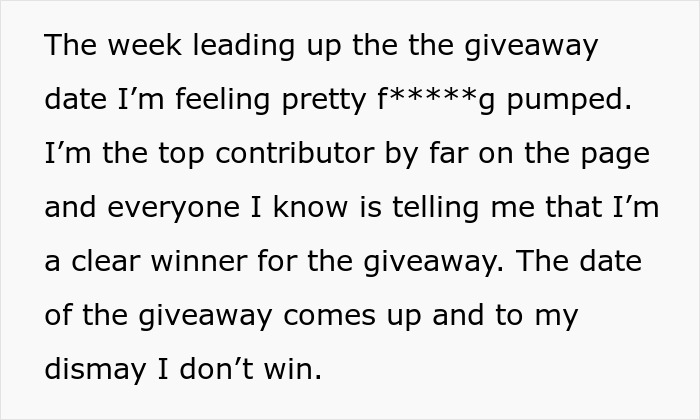
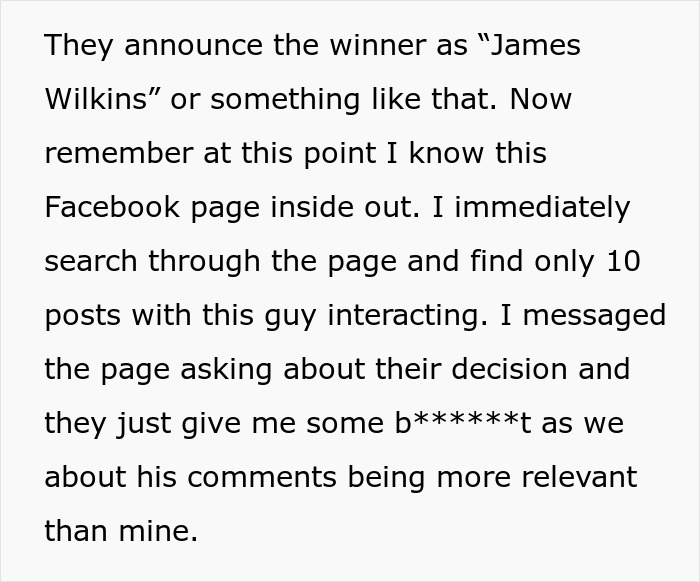
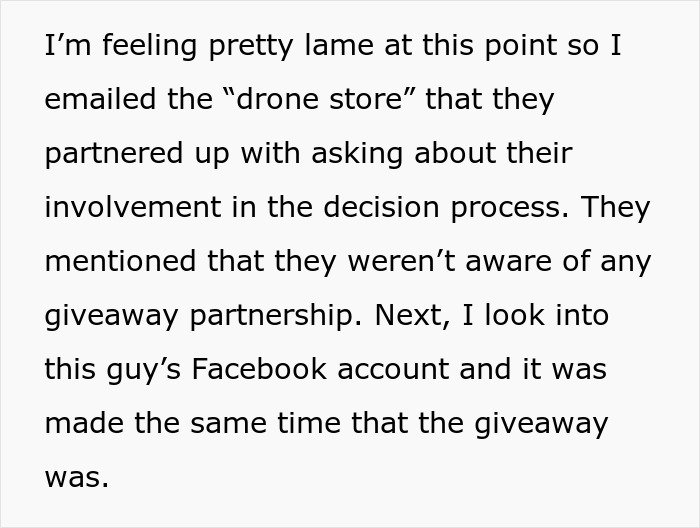

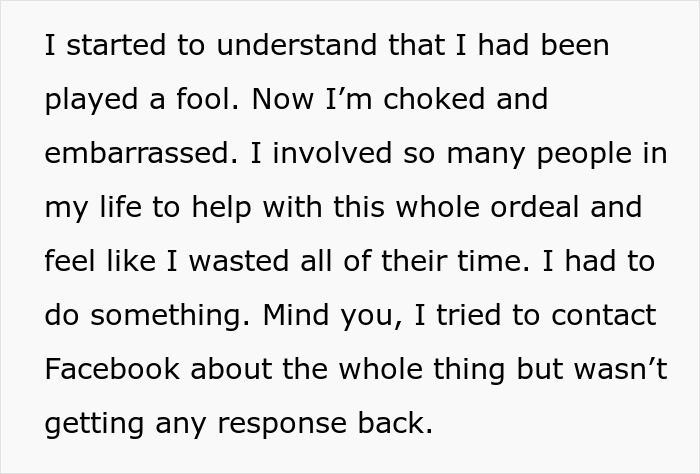
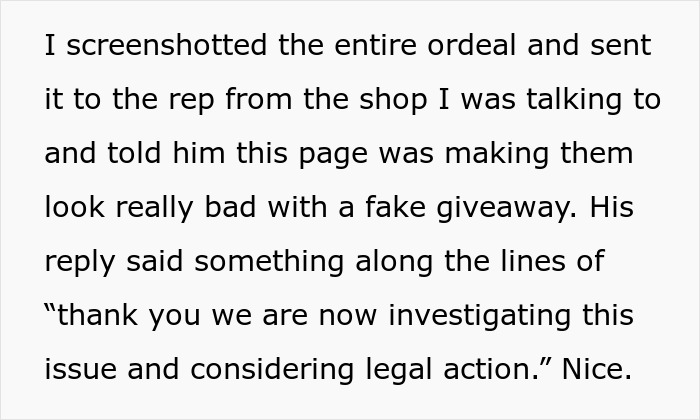
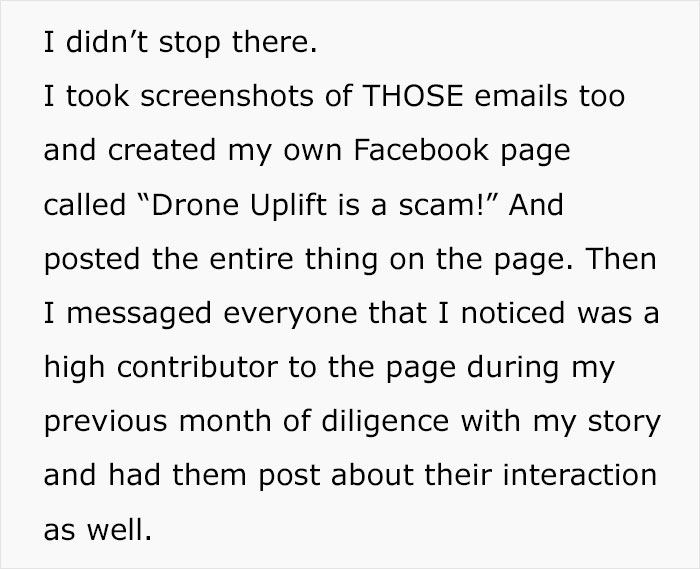
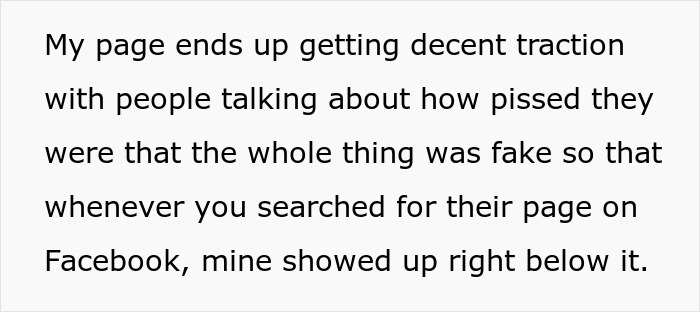
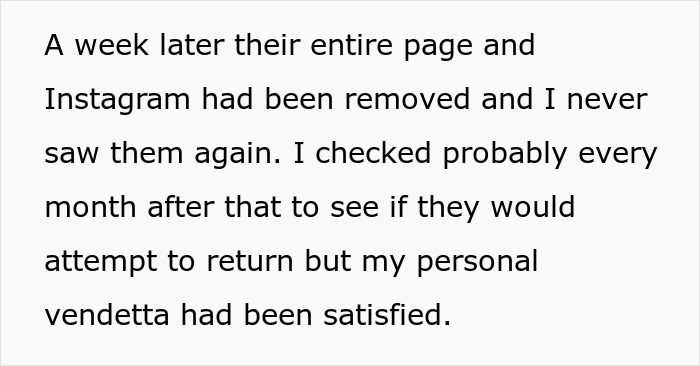




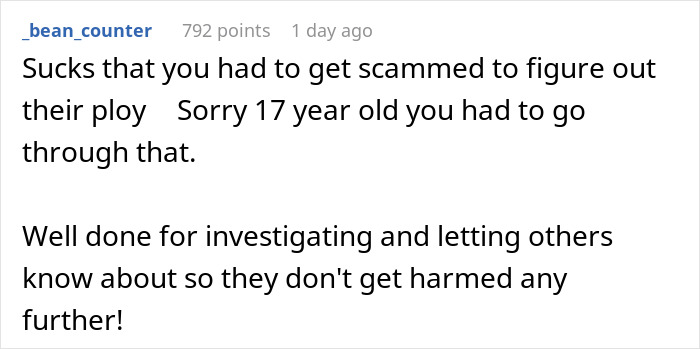
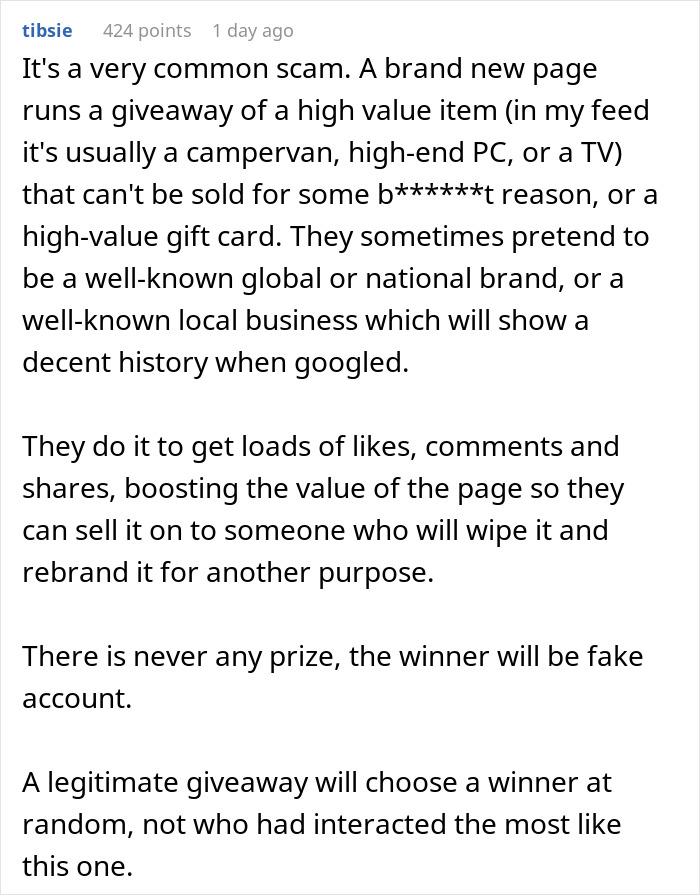


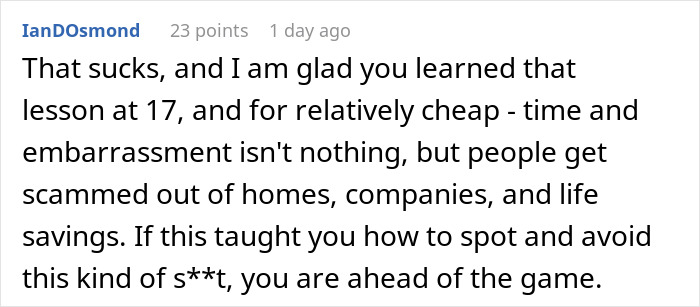


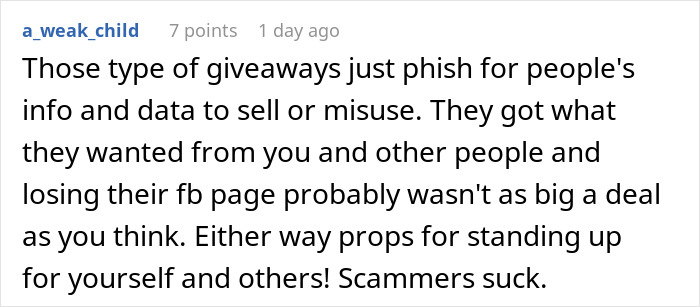
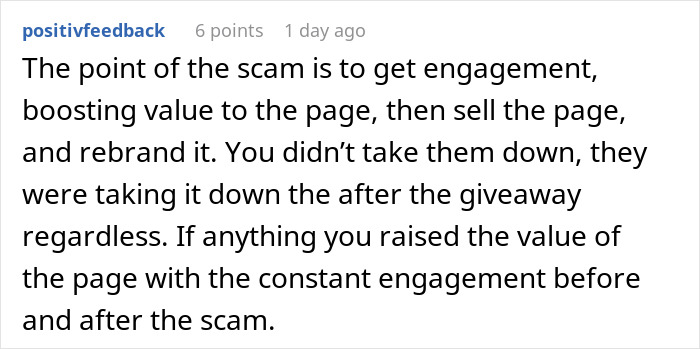

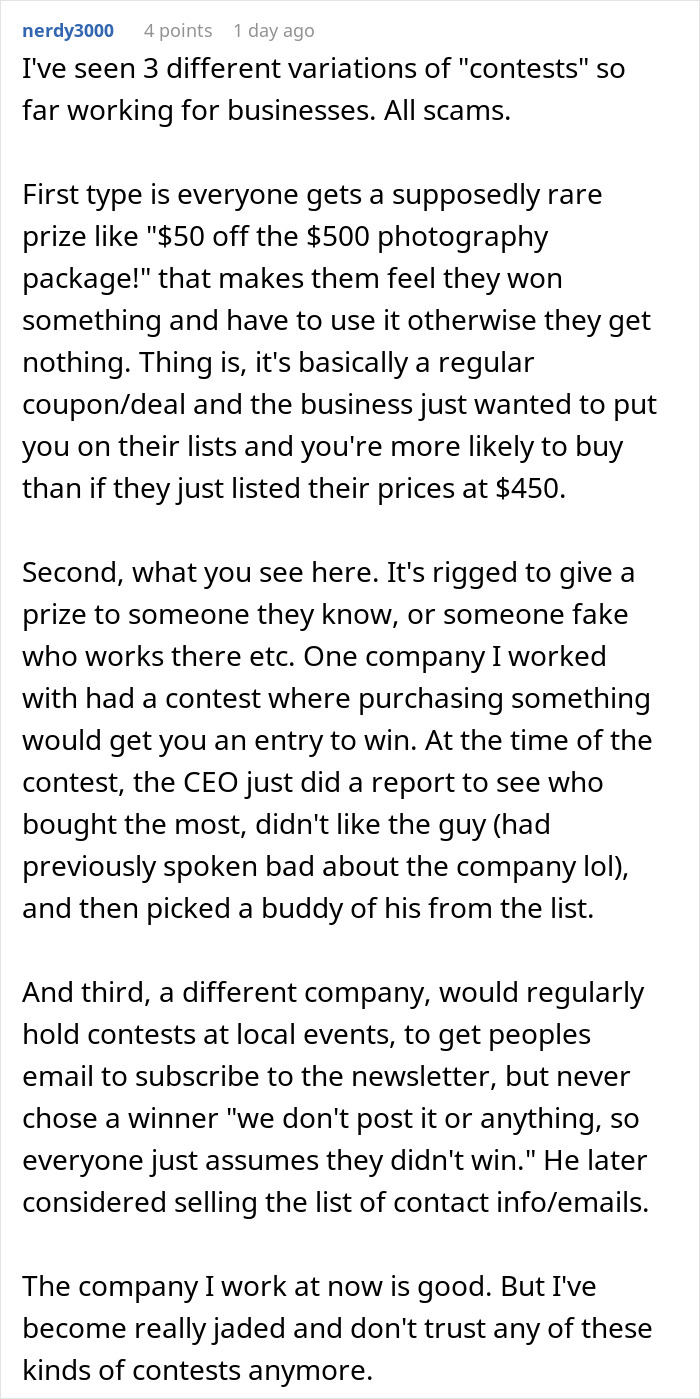

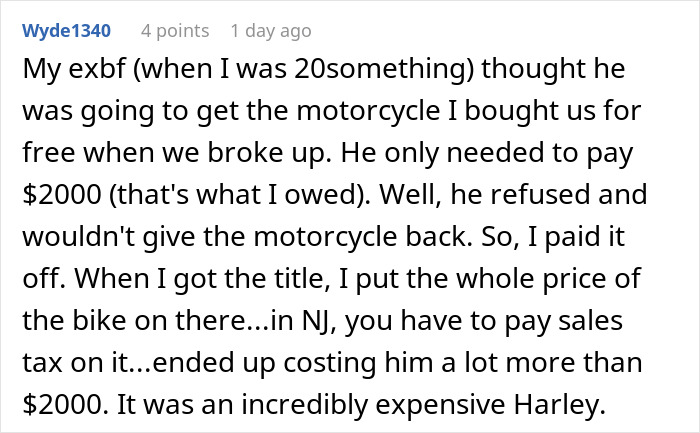




67
20